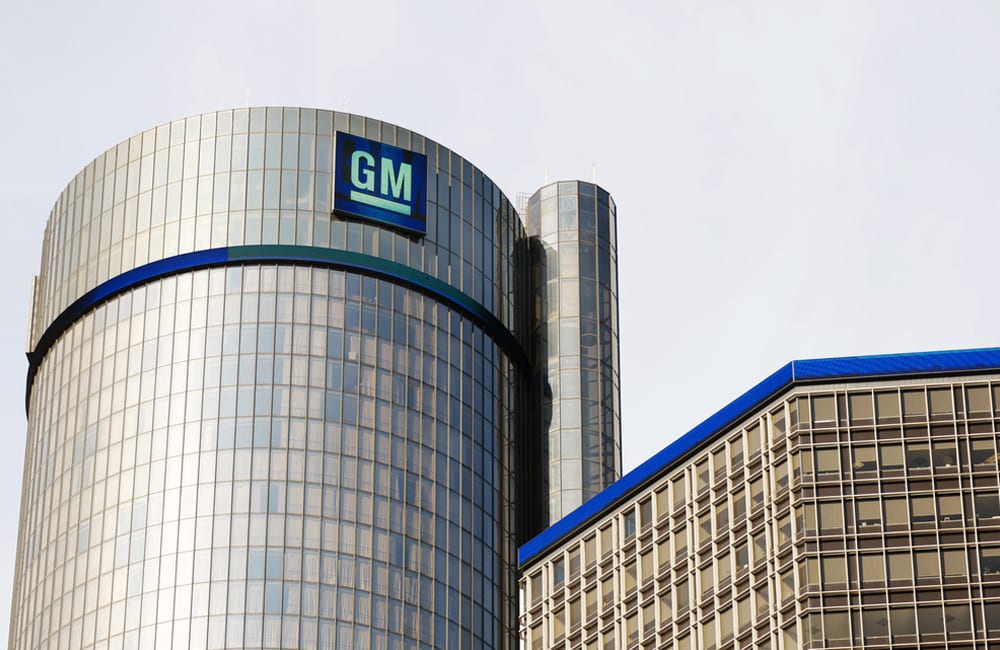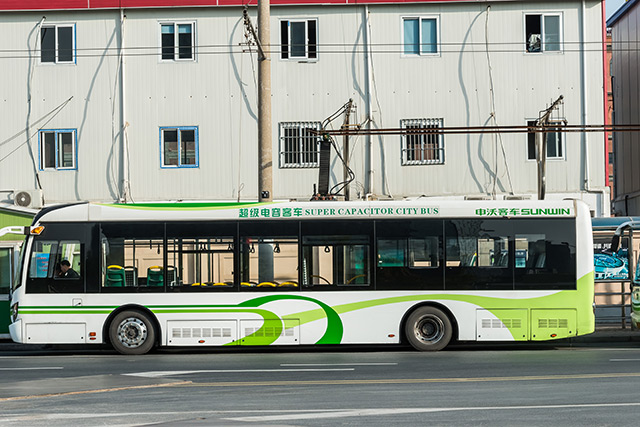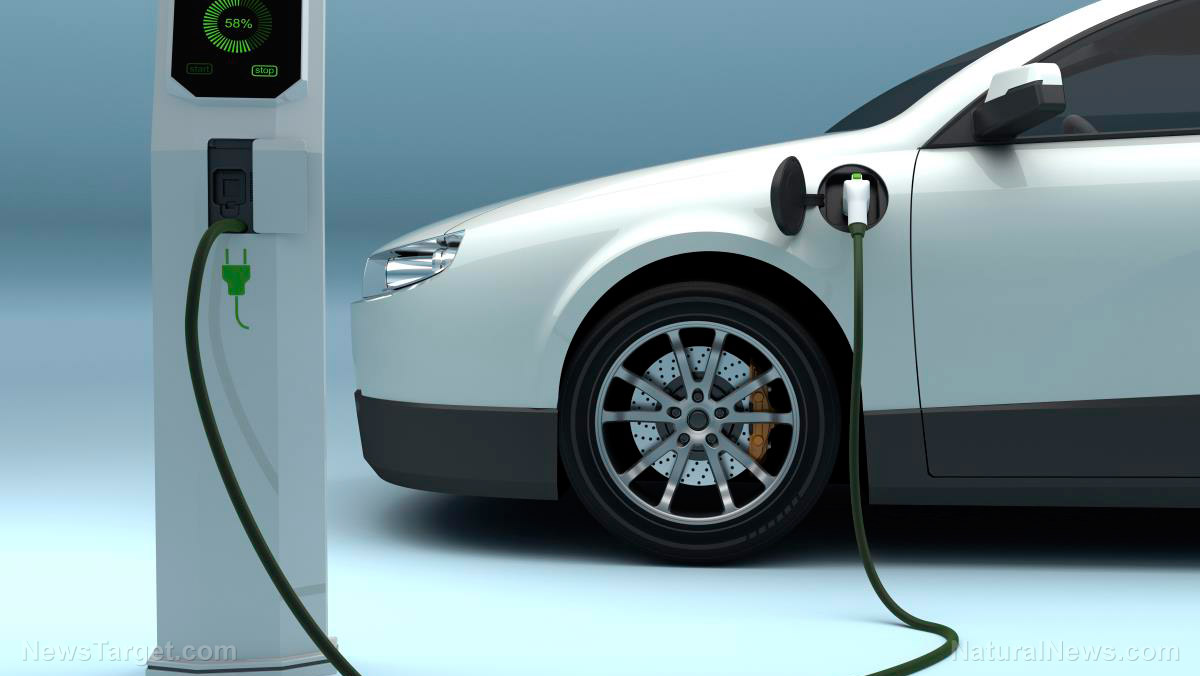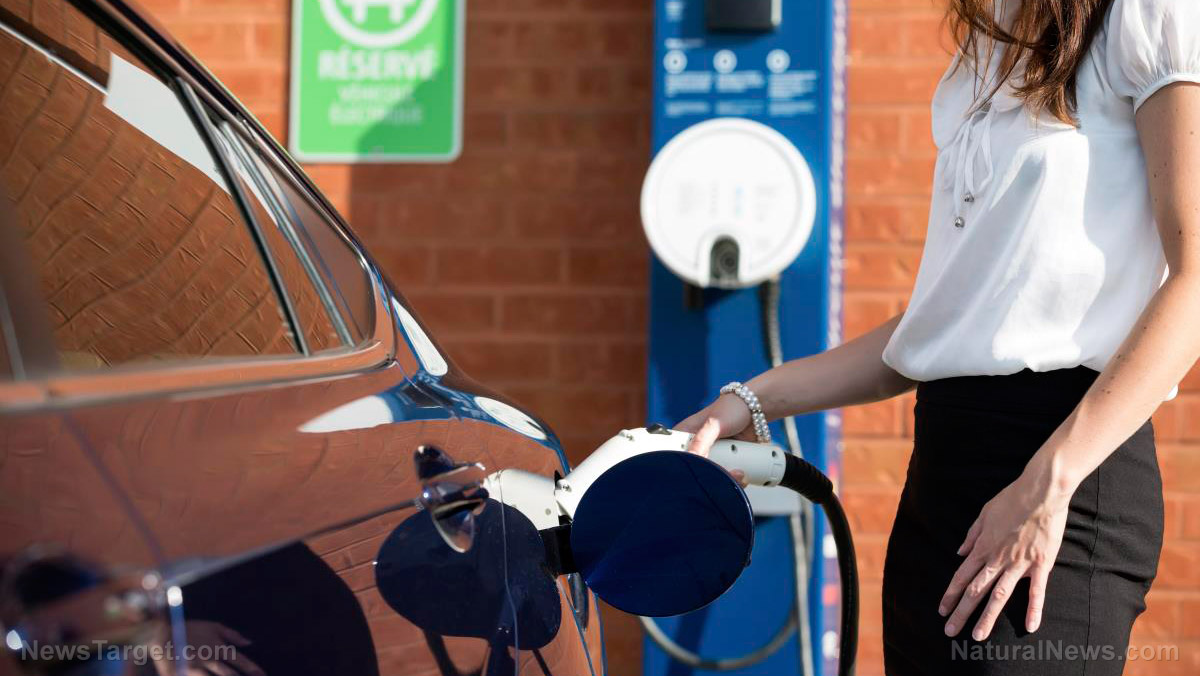IRONIC? Tesla is building the world’s largest supercharger station, but it’s powered by a diesel power plant
10/13/2023 / By Laura Harris

Energy-related public policy analyst David Blackmon has revealed that Tesla, the leading electric vehicle (EV) manufacturer, is building the world’s largest Tesla Supercharger station in California. But the irony is, the station is fueled by a diesel power plant.
During the interview with Blackmon on EpochTV‘s “Crossroads,” he disclosed that the Harris Ranch EV charging station in Coalinga, California has 98 high-speed Tesla chargers. Moreover, the charging station is partially powered by a diesel-generating plant. (Related: EV owners complain about “logistical nightmare” caused by lack of charging stations.)
However, this project contradicts their 2021 claim that all of Tesla’s Superchargers would be 100 percent powered by renewable energy. Though Tesla did not give a statement, Blackmon explained the role of diesel in electric vehicles.
“People think, I guess they think the power comes from just the sky or something. But something has to generate the electricity that enables those chargers to recharge those batteries. And Tesla operates this charging station and decided they needed that diesel generating plant, and they strategically located it behind the Shell station,” he said.
Power grid transformer shortage threatens EV expansion and grid reliability
During the interview, Blackmon also discussed one of the pressing issues – the capacity of the power grid to meet the growing demand for electricity due to the increasing use of EVs. He discussed the shortage of electric transformers, which are essential components of every electrical project worldwide.
“Transformers are an integral part of every electricity project in America—around the world, really—and they’re in very short supply. It’s taking up to four years to source new supplies of these transformers. Inventories are very low.”
In an article written by Katie Brigham for CNBC, she also explains that by 2030, more than half of all new cars sold in the United States are likely to be EVs. This could create a problem for the electricity grid, which is already quite old and designed for a world that primarily relies on fossil fuels.
Professor Deepak Divan, the director of the Center for Distributed Energy at the Georgia Institute of Technology, estimated that connecting multiple Level 2 chargers to a single transformer can drastically reduce its lifespan, thus putting more pressure on these essential components.
The rising cost of transformers from $3,000 to $20,000 each is also challenging. Larger transformers are necessary to support the growing number of EVs, and so is the replacement of numerous power poles in the United States.
Some experts suggest encouraging EV owners to charge during off-peak hours to reduce the strain on the grid. However, the report warns that this may not fully solve the peak-load issue as EVs become more common.
Transformers are designed to cool down at night, but when multiple EVs use Level 2 chargers at night, they can overheat, especially during summer heatwaves.
Moreover, shifting from fossil fuels to renewable energy further increases costs. The local grid upgrades alone require around $1 trillion by 2035 for the 3,000 electric distribution utilities in the U.S. So, the cost of improvement and replacement of power-generation units, transmission lines, substations, and renewable energy and battery storage support could be over $2.5 trillion by 2035. In short, utility companies are also affected.
Blackman also emphasized that charging EVs during disasters like hurricanes could be affected by power disruption. The lack of transformers could significantly delay power restoration, especially in areas with many EVs.
Learn more about electric vehicles at RoboCars.news.
Watch this video that talks about whether the U.S. power grid can handle the EV boom.
This video is from the Daily Videos channel on Brighteon.com.
More related stories:
Illinois bills seek to require EV charging stations in new and renovated homes.
New Illinois law mandates electric vehicle charging stations in all new and renovated homes.
7 Reasons why the electric vehicle is not ready for mass consumption.
Canadian electric truck owner describes his EV experience as a frustrating SCAM.
Sources include:
Submit a correction >>
Tagged Under:
charging stations, deception, diesel plant, electric cars, electric vehicles, electricity, energy infrastructure, energy supply, flying cars, ford, fossil fuel, future tech, green living, Green New Deal, infrastructure, inventions, power, power grid, products, robocars, truth
This article may contain statements that reflect the opinion of the author
RECENT NEWS & ARTICLES
FlyingCars.News is a fact-based public education website published by Flying Cars News Features, LLC.
All content copyright © 2018 by Flying Cars News Features, LLC.
Contact Us with Tips or Corrections
All trademarks, registered trademarks and servicemarks mentioned on this site are the property of their respective owners.



















